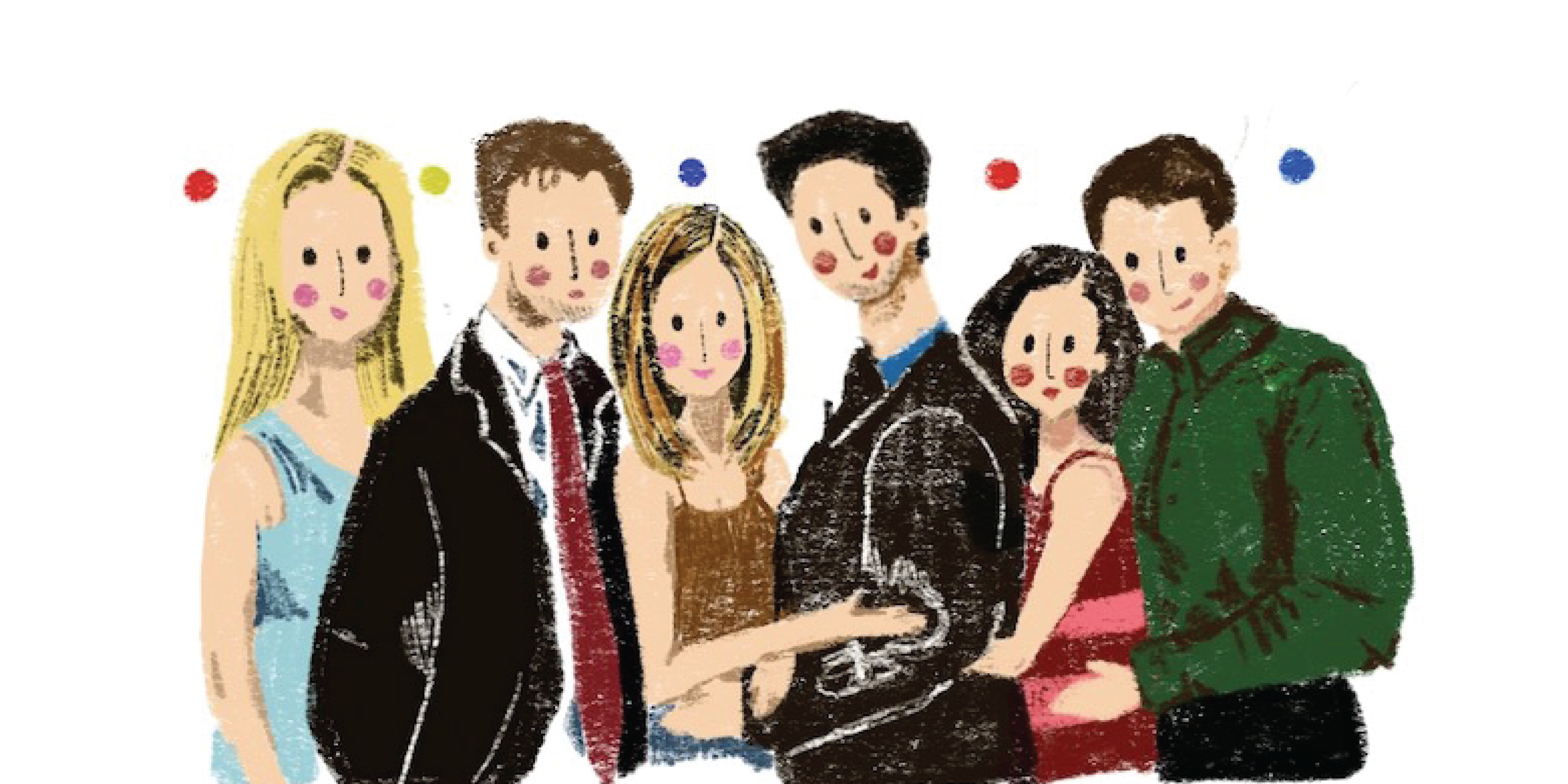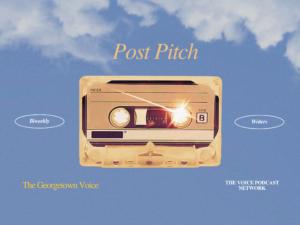When Netflix users logged in on January 1, they noticed something missing. The show Friends had left after a five-year run. In those five years, it had garnered a whole new generation of viewers and inspired ’90s nostalgia for the show’s original audience. For me, Friends wasn’t just another streaming binge—it was essential to my transition to Georgetown.
The whole summer before the start of my first semester was an escalation of anxiety and doubt. While I was excited to be living away from home with new people, I had misgivings about making friends on my dorm floor, in classes, and in clubs. I was scared my roommate and I wouldn’t have similar tastes. Unlike many guys my age, I was never into sports, instead entertained by TV shows and movies.
Since I opted for a random roommate, I feared there was little chance we would share interests. When I moved into my VCW dorm in late August, my fears turned out to be true. My roommate walked into our room with a huge, framed, custom Nico Hischier Devils jersey in his hands, carefully shrouded in bubble wrap. It was the only item for which he made an extra trip up the stairs.
For the first few days, he was just a stranger from New Jersey sleeping in the bed next to mine. We tried our best to get to know each other but there wasn’t much to discuss after a few awkward conversations about Leo’s and New Student Orientation. It was alarming to think about how little we had in common.
Then, one night early in the semester while he was watching football, he overheard me giggling at my screen and asked me what I was watching. I flipped the screen around to Rachel preparing her signature English trifle and everything changed. It turned out that he had not only watched Friends, but he was also a huge fan. I couldn’t believe it had taken me so long to figure this out. In the days that followed, we spent hours talking about our favorite characters, episodes, and plotlines. I told him, “I’m more of a Monica” and he replied, “I’m more of a Chandler.” Then we took some Buzzfeed quizzes and figured out that actually, I’m more of a Ross and he’s more of a Monica. Just like me, he was one of the many teenagers in our generation that discovered the beloved ’90s show on Netflix.
Friends opened up possibilities for us to get to know one another in a way we both enjoyed—we didn’t have to try to force our friendship because we had this show in common. We watched episodes together and casually threw around references like “Pivot!” or “We were on a break.” My anxiety surrounding making new friends in college started to wear off, too, as I realized that I have more in common with other people than I previously assumed.
Friends first appeared on Netflix in January 2015, leading to an increased following among Gen Z-ers. It also garnered viewership from its old fan base, allowing a mutual love of this show to connect across generations. My mom always comments whenever she sees us watching: “I love Friends.” My parents originally watched the sitcom when it first aired—it was one of the first shows they watched when they immigrated to the United States in the ’90s, their introduction to American culture and comedy. Watching the show helped me stay close to my family as I was growing up; it was a way for me to get to spend time with them even as I grew older. Whenever we couldn’t decide on a show, Friends was there, patiently waiting for us.
I know it’s a complicated show, it’s unrealistic, and it’s definitely not “peak TV.” Some of the jokes are extremely offensive, especially those about the LGBTQ community and the running gag with Fat Monica. It makes no sense how all six friends live in spacious, beautiful Manhattan apartments, even though many of them struggle to make ends meet as waitresses, chefs, and aspiring actors. But I can’t imagine my life without Friends. Even with all of its pitfalls, Friends succeeded in attracting millions of viewers across generations because it gave such a personal and piercing look into the heartfelt and funny relationships between young adults in New York City.
Even people who haven’t watched the show understand the impact it has had on pop culture today. From its premiere in 1994 to its finale in 2004, Friends dominated the airwaves and made stars out of its six lead actors. It led to the creation of staple sitcoms like How I Met Your Mother and The Big Bang Theory that built upon the same premise of a group of young adult friends hanging out. Given its universal depiction of an American friend group in New York City that has its ups and downs, the show was able to tie together people who saw similar traits among the characters in their own circle of friends. Facing an uncertain environment away from their home, Friends provided a stable source of entertainment my parents could relate to, regardless of how different it was from their own life—just like I found when I arrived at Georgetown.
In anticipation of Friends leaving Netflix in 2020, my family and I decided to give it some last love over winter break. We laughed along to Chandler’s quips and Phoebe’s quirkiness, enjoying each other’s company. If you ask me today what my favorite TV show is, I definitely will not say Friends—it’s not extremely funny, and it has a simple, predictable plot. But if you ask me what show has had the biggest impact on my life today, it’s the only valid response.
Friends was a valuable part in forming my most treasured relationships because it is a show about when friends become your family. With Friends off Netflix, I feel sad at losing this show that truly impacted my life, but what I haven’t lost is the Joeys, Phoebes, and Rosses I’ve met in life along the way. Because of Friends, I found my family at Georgetown.





